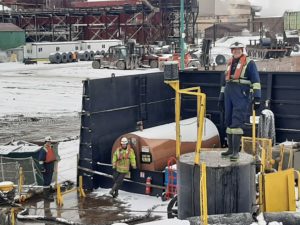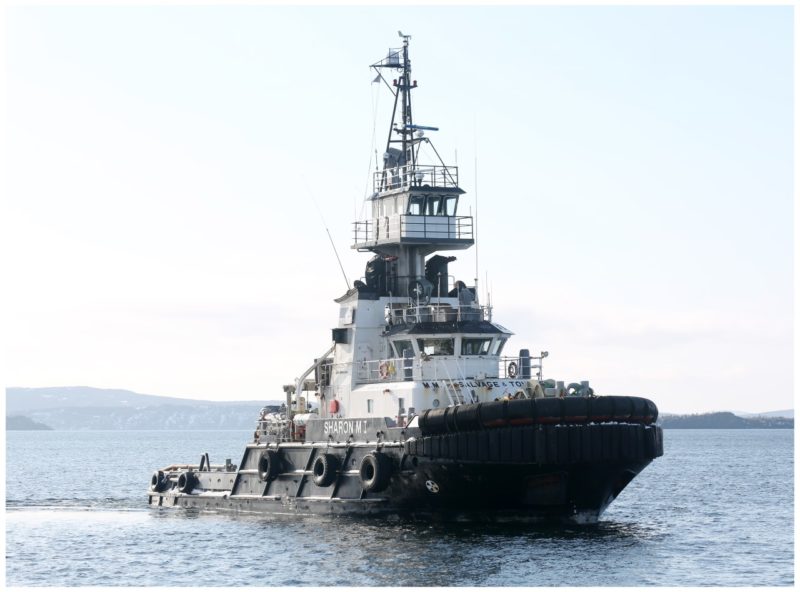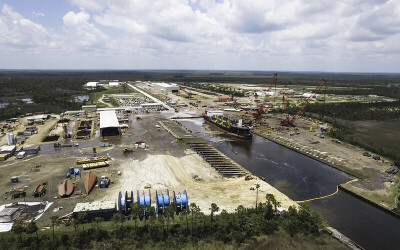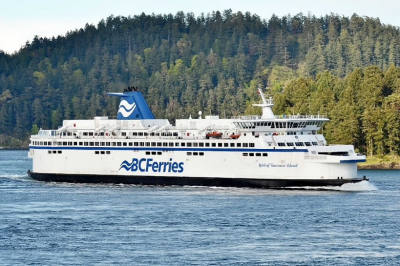It isn’t easy to social distance on a tug. The Sharon M, which regularly pushes a barge carrying Canadian-made steel coils and plates to U.S. cities for auto production, is just under 35 meters (114.8').
The interior is much smaller than the giant bulkers that ply the Great Lakes. The hallways are narrower and the nine-person crew share accommodation and three bathrooms.

The crew aboard the barge that is attached to the Sharon M as its being loaded with steel coils at Algoma Steel in Salut Ste Marie, Ontario. Chamber of Marine Commerce photo
But that hasn’t stopped the vessel’s operator McKeil Marine from devising ways to protect the crew during the Covid-19 pandemic. One of the most important steps has been thoroughly vetting crewmembers before they arrive for duty, including temperature checks, and organizing crew rotations so the same crew work together for five weeks and then all leave together for their five weeks off.
When Capt. Ray Davis and his crew arrived for duty, the chief engineer had already been doing winter repair work on the tug for weeks. But he volunteered to stay an additional five weeks so that he could continue to rotate with the crew during the pandemic.
“We have just a great group of guys. We’ve been on the same boat for five years,” said Capt. Davis. “They are really hard working and they buy into our team within a team approach, which really helps when you’re dealing with a situation like Covid-19.”
Davis is one of a number of captains that were interviewed by the Chamber of Marine Commerce for a series of articles highlighting how crews are working, living and coping with the coronavirus pandemic aboard ships transporting vital goods in the bi-national Great Lakes-St. Lawrence region and the East Coast.
Designated as an essential service during the pandemic crisis, crew members have gone to great lengths to adapt their work practices, often making personal sacrifices to ensure the safety of their fellow crew members and to ensure that food staples, manufacturing materials and energy supplies continue to be delivered in Canada and the U.S. Marine transportation supports more than CDN$60 billion (US $46 billion) of economic activity in the binational Great Lakes-St. Lawrence River region.
To ensure that supply chains remain uninterrupted, Canadian ship operators have collaborated to create a detailed set of best practices to protect their crews and shoreside employees during Covid-19.
Fleets from Algoma Central Corp., Canada Steamship Lines, Rand Logistics Inc., Groupe Desgagnés, McKeil Marine, McAsphalt Transportation Services, Sterling Fuels are all part of the initiative, which was led by the Chamber of Marine Commerce. More than 85 Canadian-flag ships are participating — ranging from tug and barges and tankers to bulk carriers and general cargo vessels — all delivering goods throughout the Great Lakes, St. Lawrence, and the East Coast.





